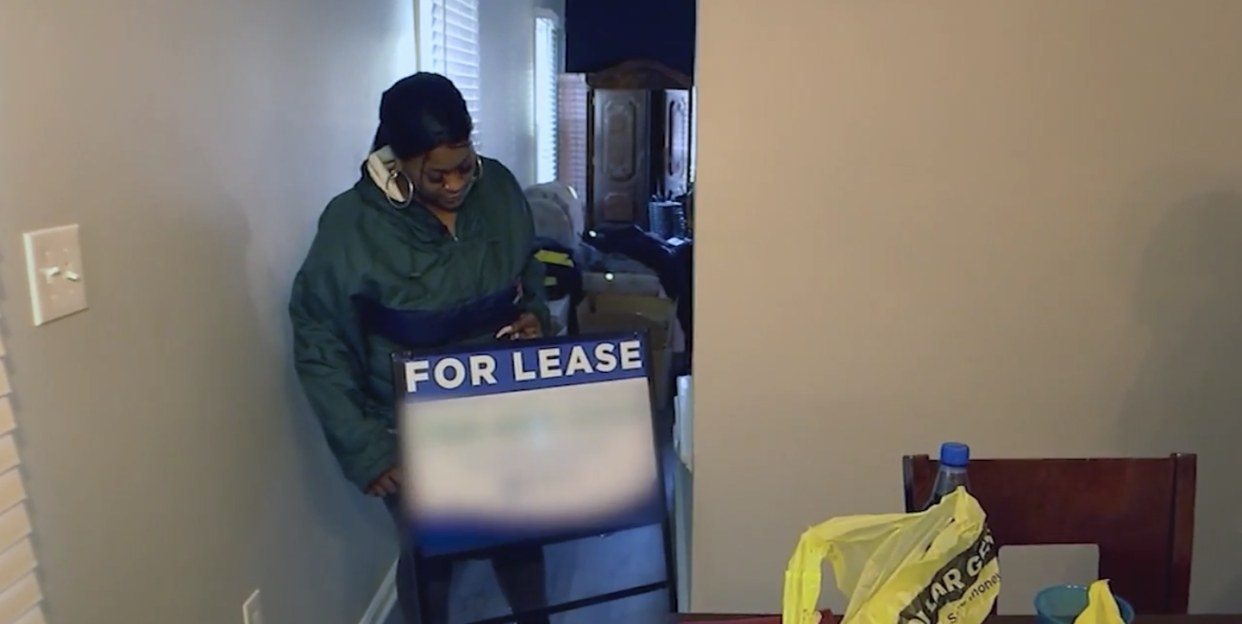North Carolina Mom Out $1,700 After She Rented a Home on Zillow From Scammer

If you're considering renting property from an online real estate marketplace, always proceed with caution. While these platforms were created to simplify the renting process, they offer ample information to the general public that could be used to pull a fast one on you. One North Carolina woman got bamboozled out of $1,700 after she rented from an unknown man who didn't even own the home.
Mom Lavonnda Stilley was looking to move closer to her job with her kids, so she turned to popular app Zillow to help her find a rental in Raleigh, reports ABC 11. For each listing she was interested in, the app prompted her to enter contact information, her monthly income, how many people would be living in the house, etc. A man phoned her about one of properties she was interested in, and instructed her on how she could access the home to tour. She went to the address and obtained the key from the lockbox, following the directions the man gave her. She committed to the home right after walking through. "I was so eager to get a house quickly because I had to get the kids into school," she said. Stilley wired $1,700 to the man and kept the key from the lockbox. She never met the man who she was renting from.
Shortly after she had settled in her new home, a couple entered trying to tour it. "They had a key. They walked right in," Stilley said. She told them her family had already rented the space and sent them away. When another couple tried to walk through the home the next day, she contacted police and learned she had been scammed. It turned out that the man she rented from had no association with the property, or the company who owned it. The number she had called him from previously was now disconnected.
There are a couple things to take away from rental nightmare stories like this. One, having a key to a property and paying deposit doesn't mean anything when you're dealing with a scammer. Scammers can easily duplicate keys and their main goal is to always get your cash into their hands before you realize you're being scammed.
The Federal Trade Commission elaborates on how scammers typically go about their business. They can either hijack a listing by changing the email address/other contact information on it, or place a modified version of the ad on another site, as in Stilley's case. The altered ad may even use the name of the person who posted the original ad, but just provide different contact info. Scammers have even been known to break into the email accounts of property owners. Listings may also be entirely fabricated. The property may not be on the market, or it could be a completely bogus address. If the deal seems ever seems way too good to be true, it probably is.
Here are a few red flags to look out for when renting.
You're asked to wire money: Obviously, landlords want your deposit in their hands soon after signing the lease. But if you're asked to wire money, that's just fishy. If you can, pay with a credit card so there's at least a trail of where the money is going. At the very least, use a check. Money should never be wired.
You're asked for a security deposit or first month’s rent before you’ve met or signed a lease: Nope! If the landlord is money-hungry before even signing the lease, you walk. Also, he/she should never be asking for an amount of money other than what was stated in the listing—only under extreme circumstances should it ever change.
The landlord says he's out of the country: Don't conduct any business until you can meet with a landlord in person. You should always do a walk-through with the landlord or renter present, not only to make sure they're real, but to assess any pre-existing damages with them, too.
More than one listing exists, and the contact info isn't consistent: In Stilley's case, the phone number she talked to the scammer on was not the same number on the rental sign outside the home. Check that the same contact information is provided on all listings for that property.
These are all telltale signs that you might be getting swindled. To be extra safe, there's nothing wrong with typing your landlord's name into Google to see if anything fishy comes up. Also, research the address of the property to see if any other listings that may exist. If you ever think you're wrapped up in a rental scam, contact police as well as the website where the ad was posted.
Follow House Beautiful on Instagram.
You Might Also Like


